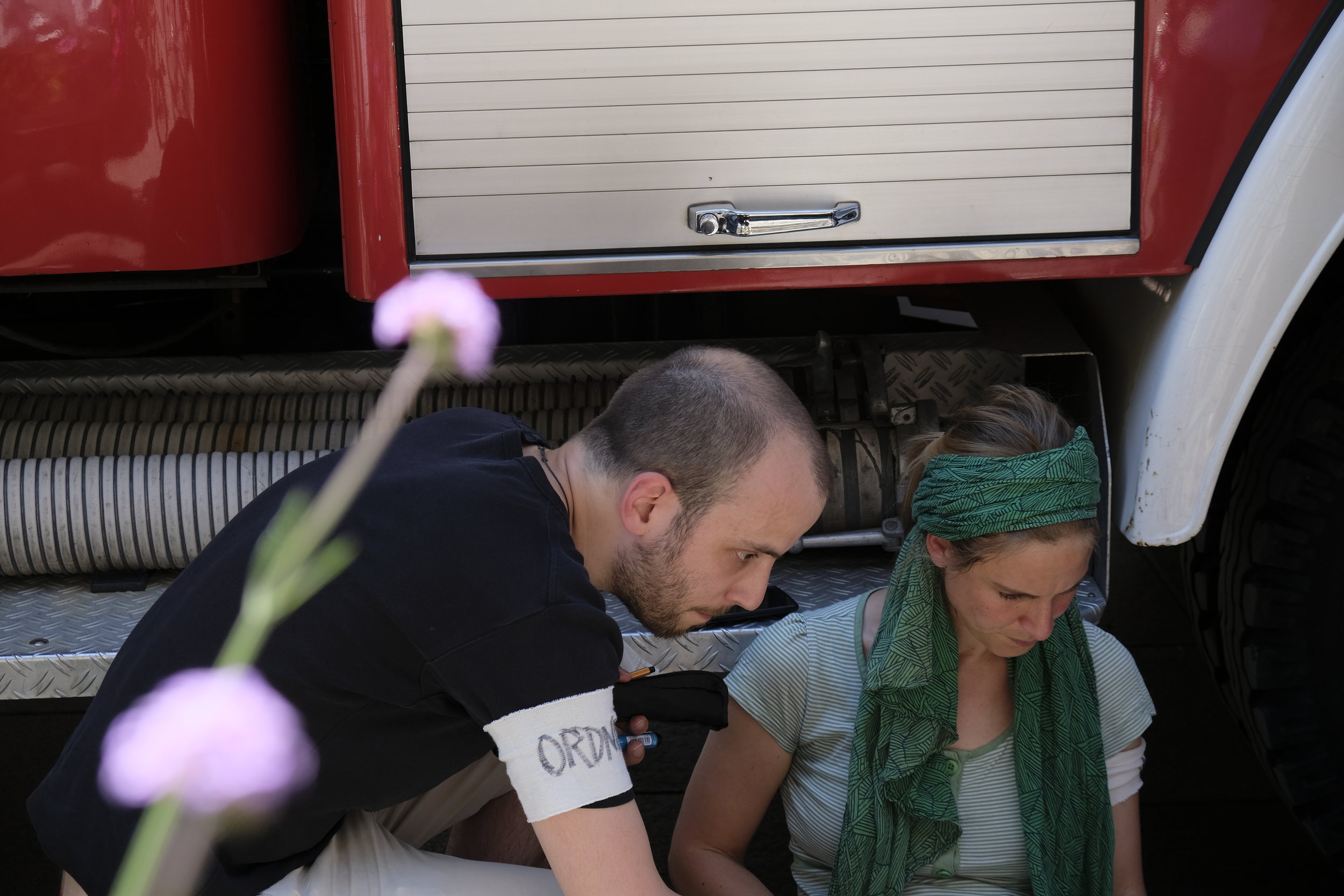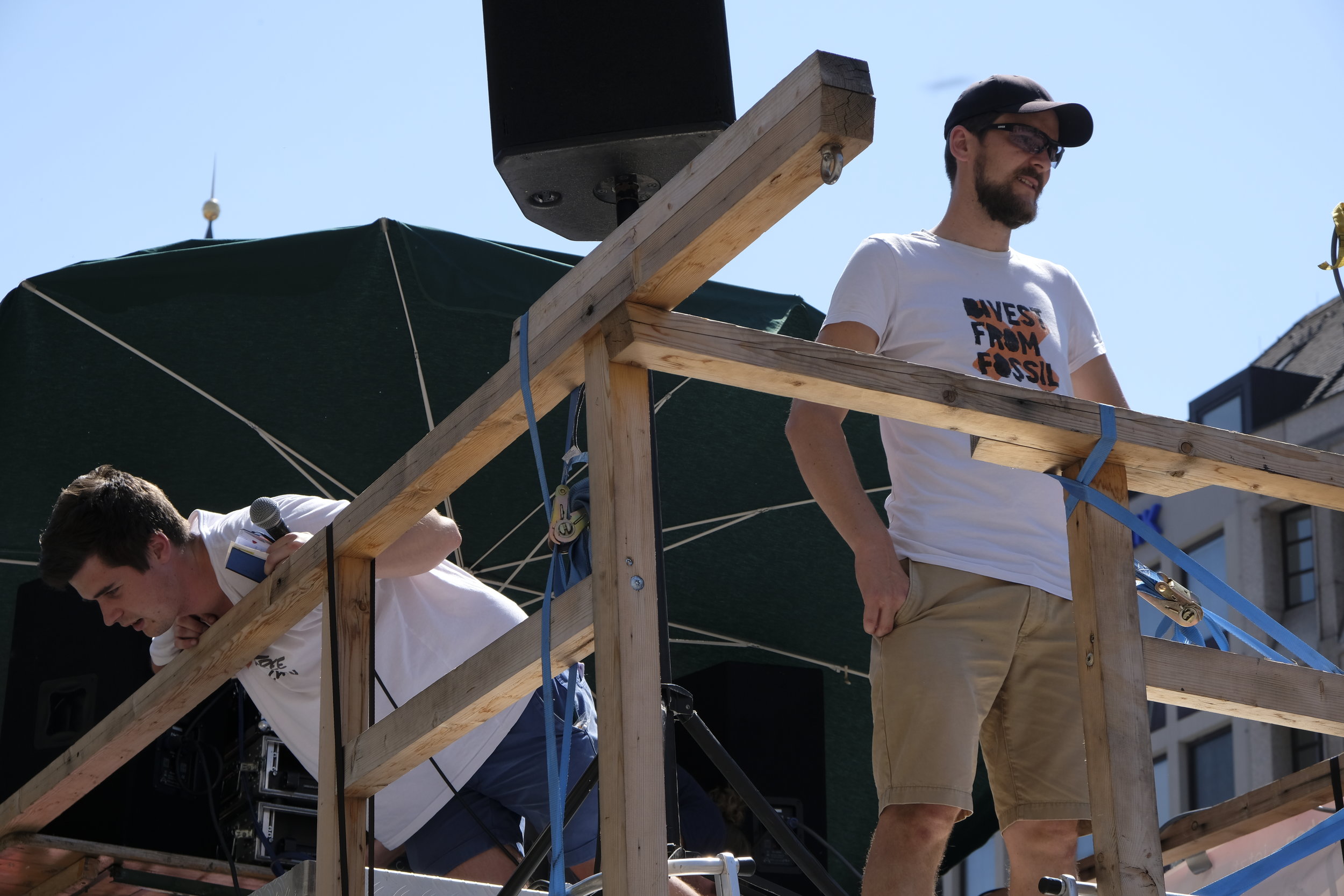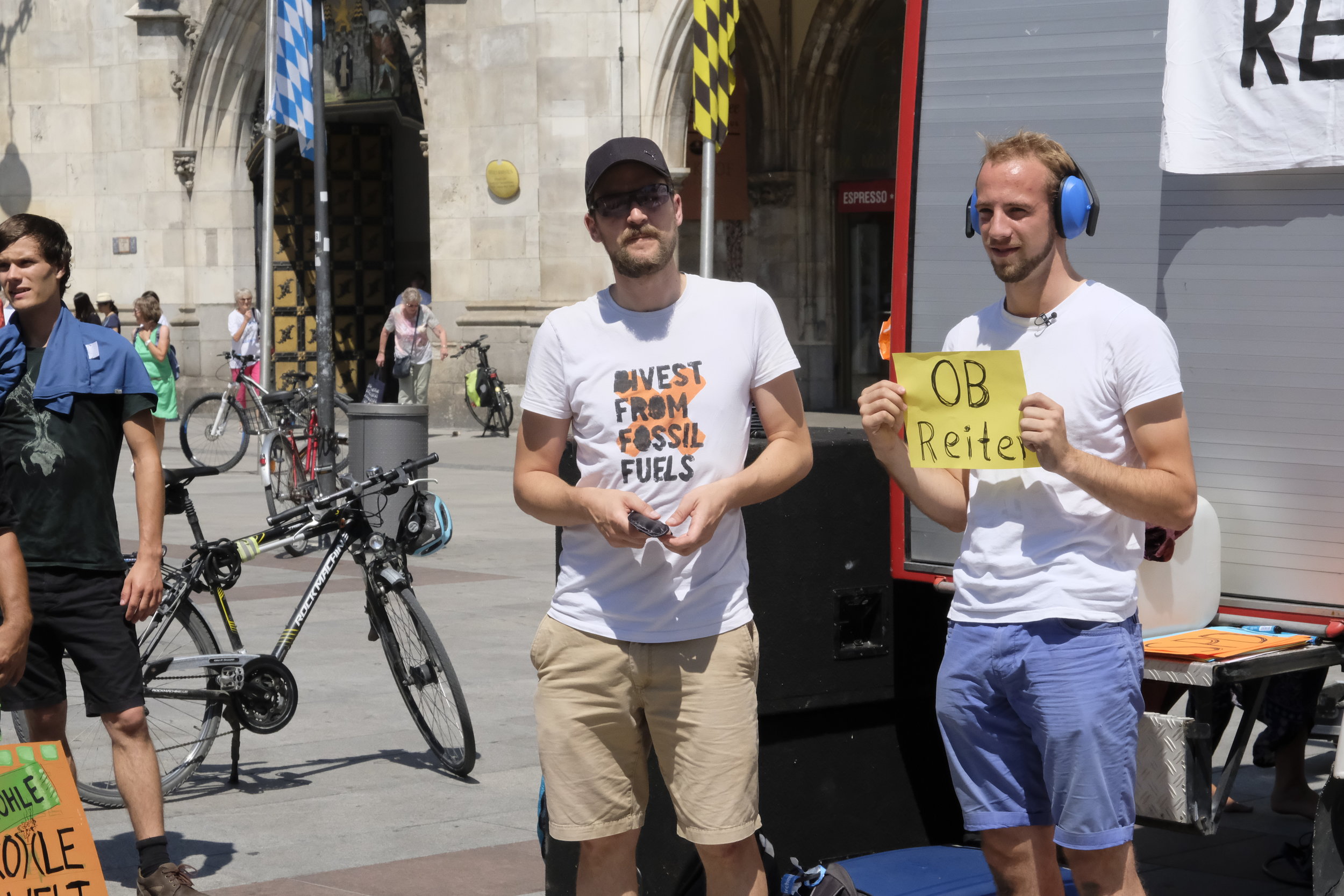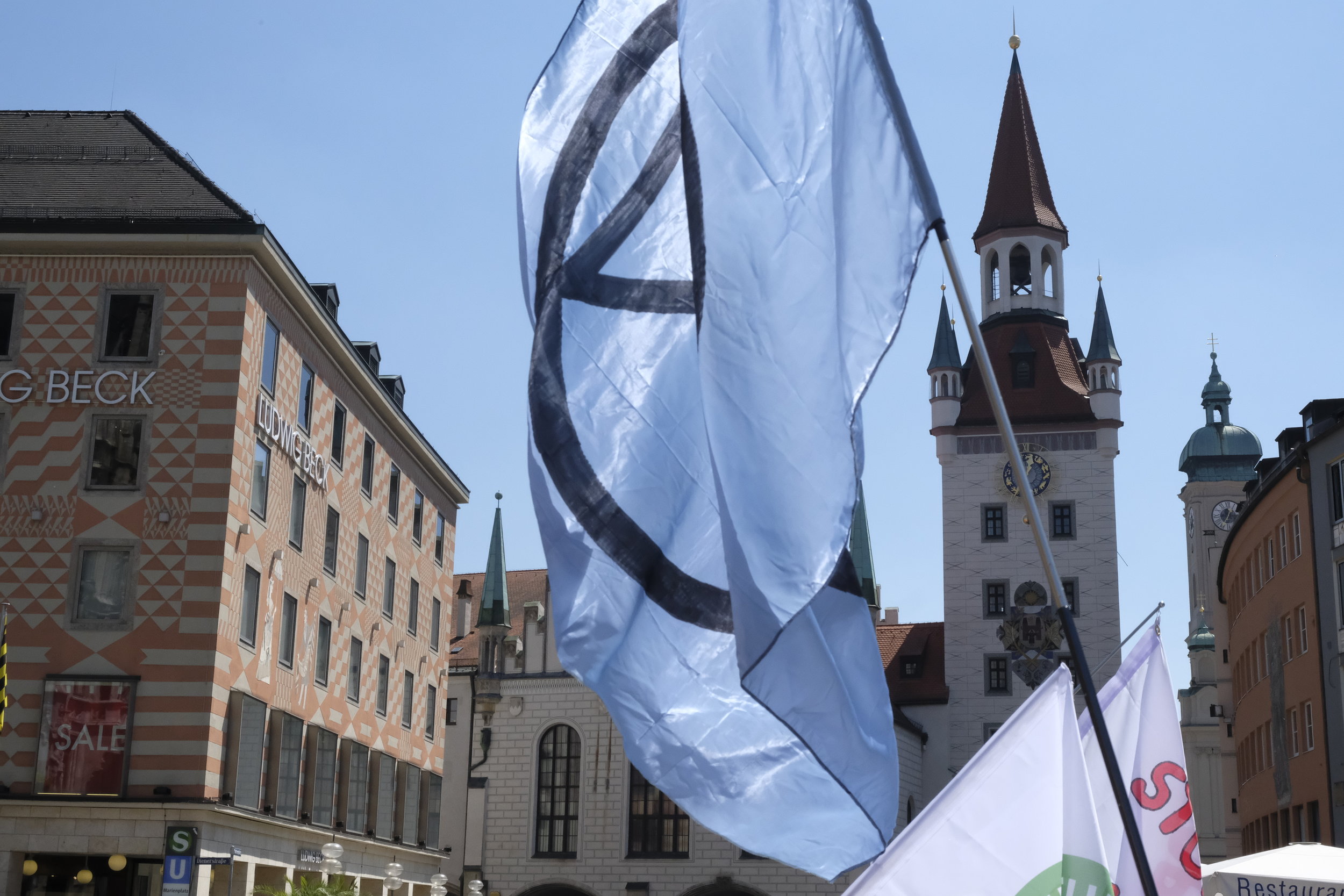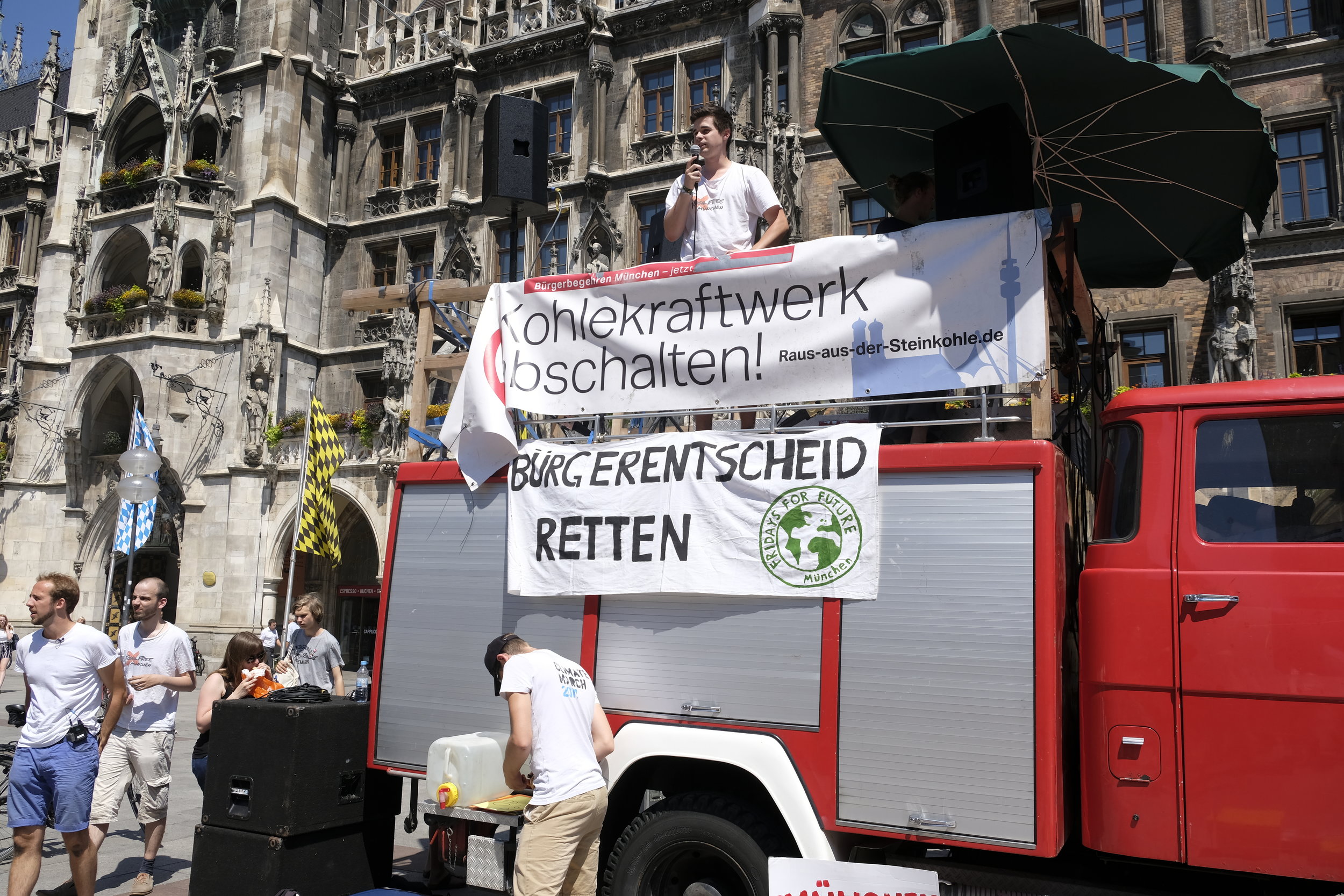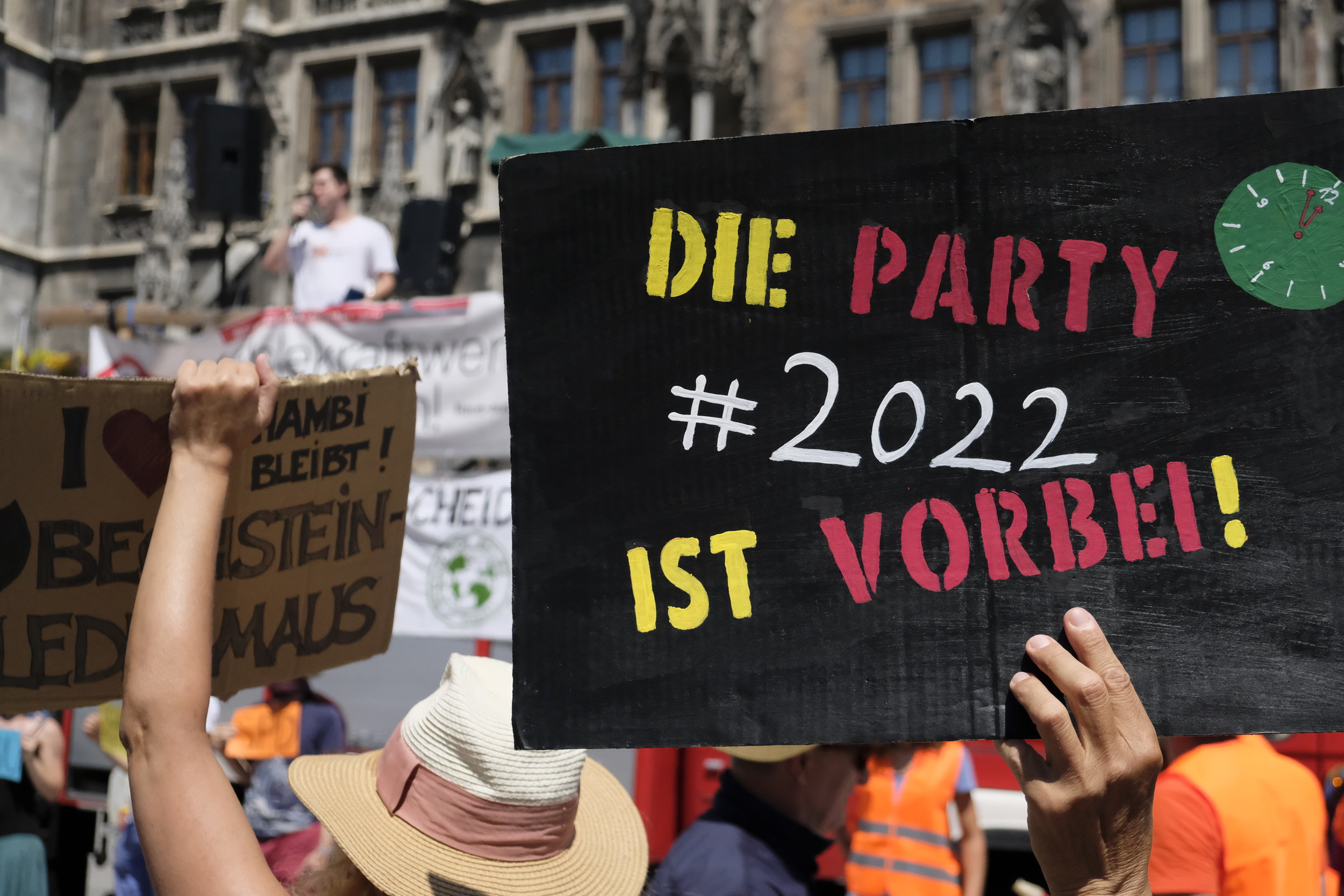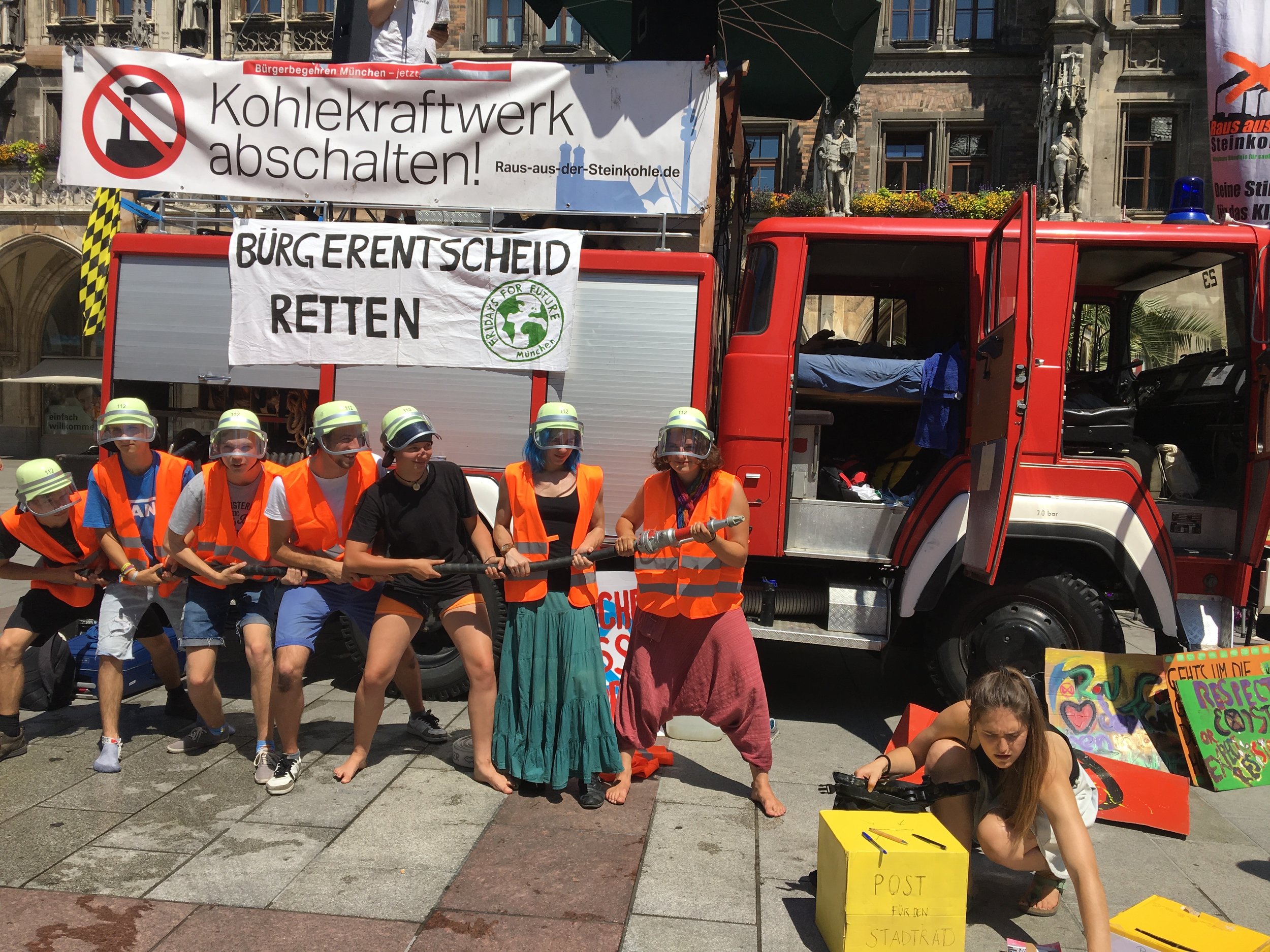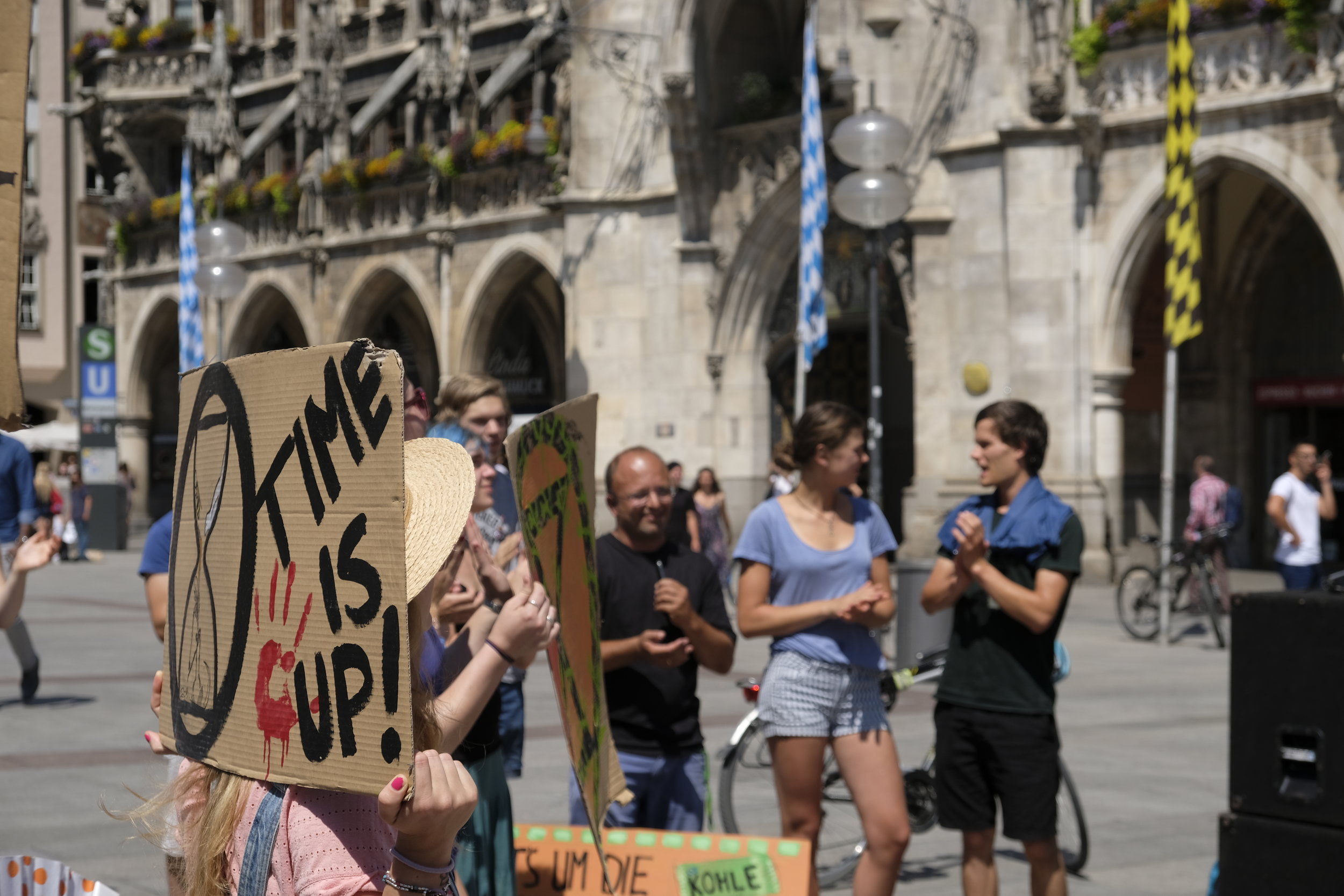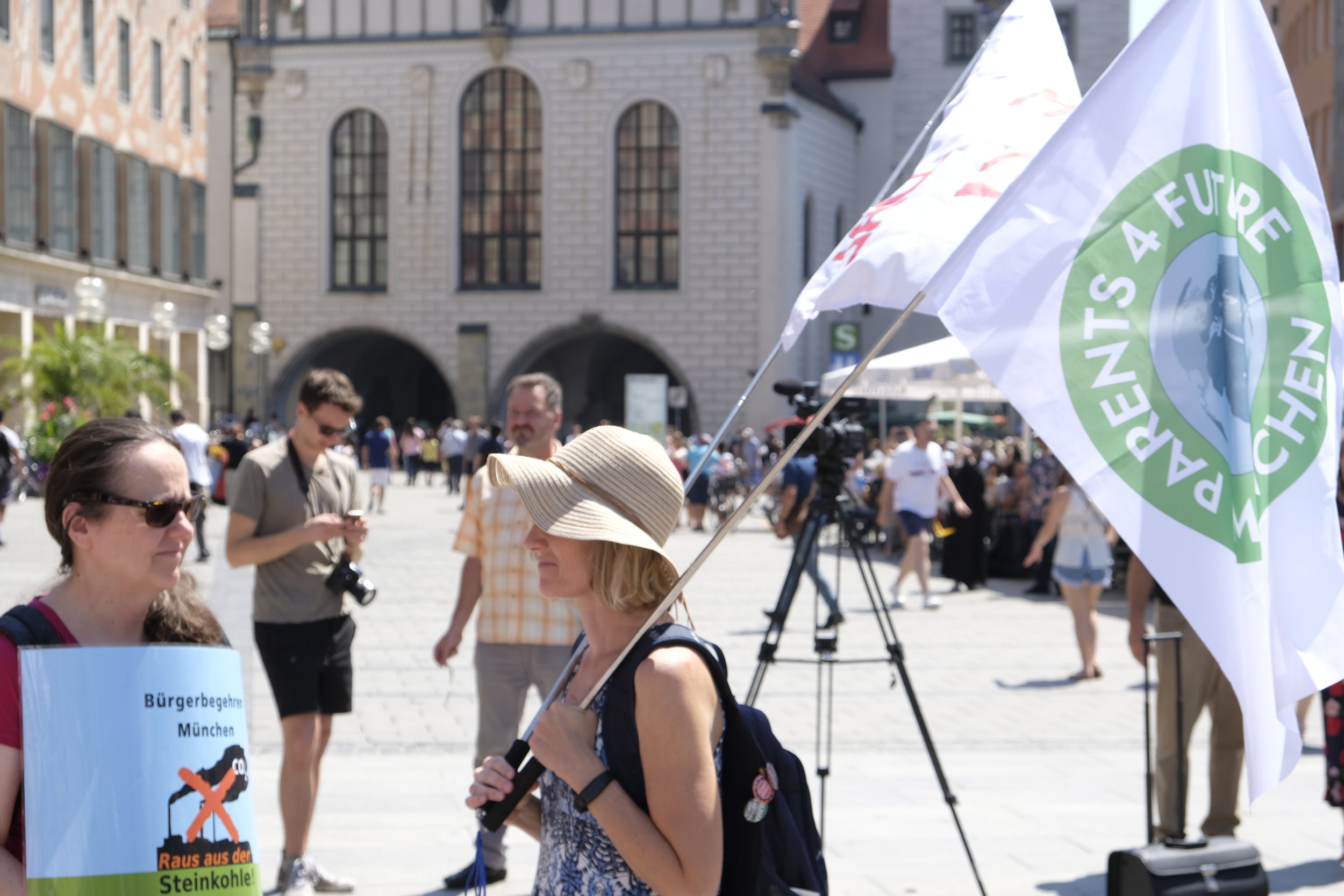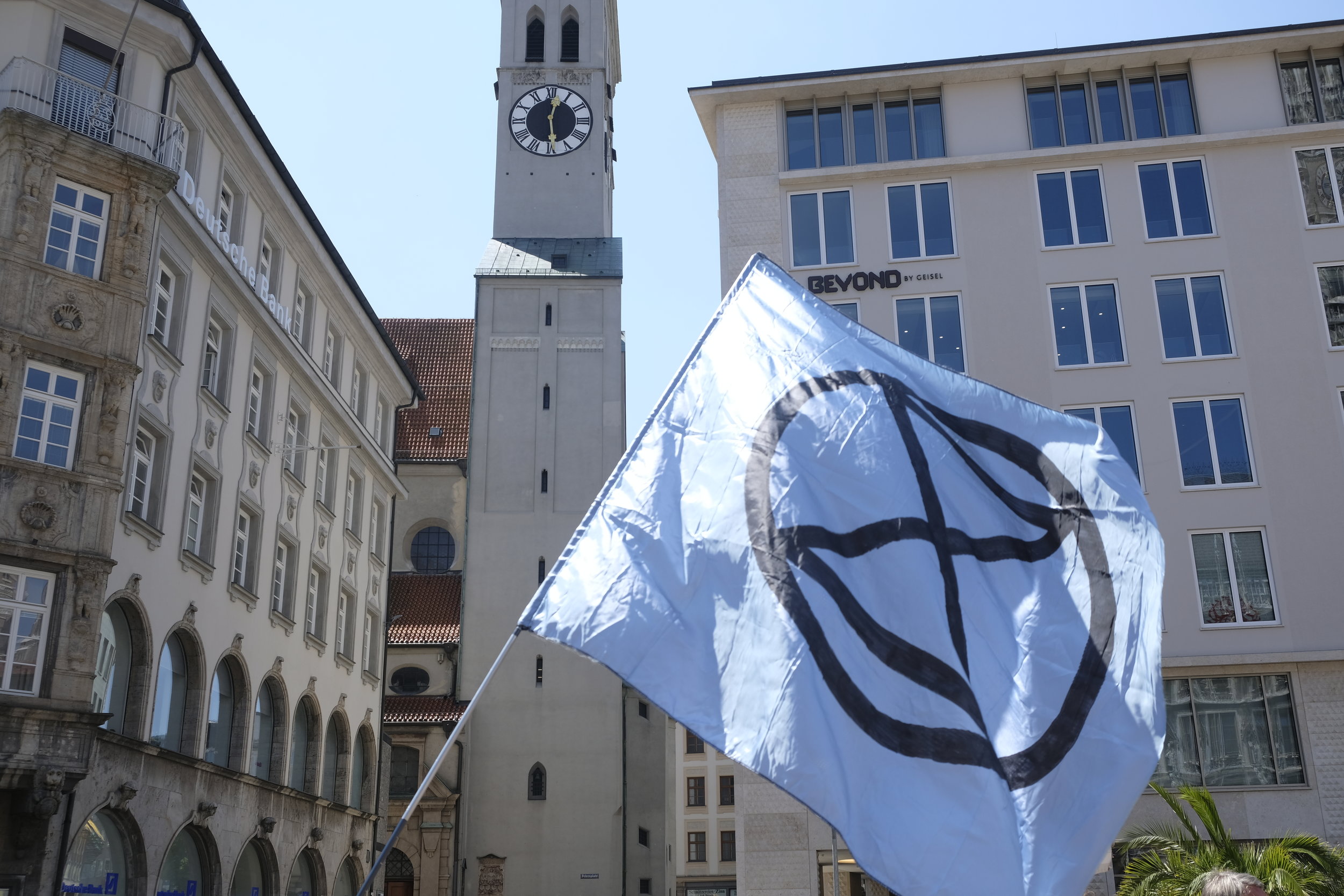‘What do you hope to achieve today?"‘ I asked protestors at a bakingly hot Marienplatz. Because it seemed pretty clear to me that Munich city council wouldn’t change its mind. ‘They’ll say the coal-fired power station will run until 2028,’ I added wisely.
In fact, I couldn’t have been more wrong.
Though in my defence, three protestors, Georg and Lukas, from Fossil Free München, plus Antonia, from Extinction Rebellion Munich, all tentatively agreed with me. And no doubt it makes their victory that little bit sweeter.
While it is unclear (to me, at least) exactly what the city council has decided, Fossil Free München were in no doubt that sooner rather than later, Munich would no longer have a coal-fired power station (perhaps with independent expert oversight first). Anyway, today’s protestors are in celebratory mood, as Fossil Free München announced on twitter:
WIN! Today, Munich's government decided not to continue burning #coal to 2028 as planned, but to commission a study how to exit coal the fastest way possible.
— Fossil Free München (@MunichDivest) July 24, 2019
This was forced by years of work by civil society and opposition parties. #PeoplePower works! One struggle one fight! pic.twitter.com/t3UdsYxMd3
